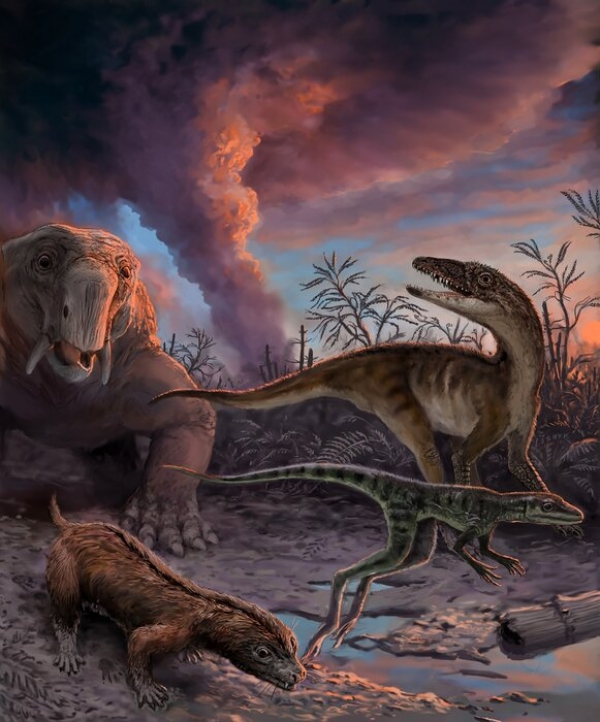Climate change, rather than competition, played a key role in the ascendancy of dinosaurs through the Late Triassic and Early Jurassic periods.
According to new research, changes in global climate associated with the Triassic-Jurassic mass extinction – which wiped out many large terrestrial vertebrates such as the giant armadillo-like aetosaurs – actually benefitted the earliest dinosaurs.
In particular, sauropod-like dinosaurs, which became the giant herbivore species of the later Jurassic like Diplodocus and Brachiosaurus, were able to thrive and expand across new territories as the planet warmed up after the extinction event, 201 million years ago.
The new evidence is published in Current Biology, by an international team of palaeontologists led by the Universities of Birmingham and Bristol, in the UK, Friedrich-Alexander University Erlangen-Nürnberg (FAU), in Germany, and the University of São Paulo in Brazil.
Read more at University of Birmingham
Image: Dinosaur ancestors are shown in this artist's conception of life in the Chañares formation approximately 235 million years ago (Credit: Victor O. Leshyk, www.paleovista.com)


